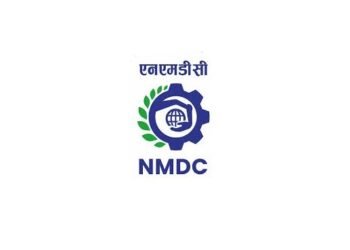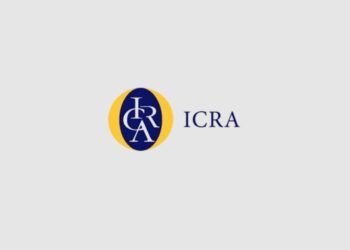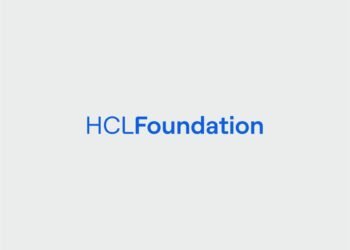
Words Manish Kumar
NEW DELHI (India CSR): Effective Document Management Systems (DMS) play a crucial role in reducing organizational liability and enhancing efficiency. Poor document control can lead to missed deadlines, compliance risks, and costly legal issues, especially in industries dealing with complex contracts and regulatory requirements. A well-structured DMS streamlines document storage, retrieval, and collaboration, ensuring secure access, version control, and automated alerts for critical deadlines. By eliminating inefficiencies like manual tracking and decentralized storage, organizations can mitigate risks, improve decision-making, and enhance overall workflow productivity.
Ravi Sankar Thinnati Palanichamy brings a unique blend of operational oversight and strategic insight as a Project Manager (PM) within the Project Management Office (PMO) of a telecommunications organization. His experience in managing vendor contracts has exposed him to the inefficiencies of traditional document storage methods, such as local folders and shared drives, which often fail to meet the dynamic needs of telecommunications firms. With vendor contracts being numerous, complex, and critical to service delivery, the lack of a structured Document Management System (DMS) has led to missed renewal deadlines, compliance gaps, and operational inefficiencies. Recognizing these challenges, Ravi Sankar utilized his expertise in Lean and Agile methodologies to develop a DMS selection framework, bridging the gap between project management principles and technology-driven organizational needs.
Moreover, one of Ravi Sankar’s key insights is that document management is not just a clerical task but a strategic enabler of organizational success. He has witnessed firsthand how the absence of real-time collaboration tools delays contract negotiations, how poor search functionality buries critical clauses, and how manual renewal tracking leads to costly oversights. These challenges inspired him to view a DMS as more than just a storage solution, it is a tool to enhance workflow efficiency, ensure compliance, and foster collaboration across departments. His exposure to Lean principles reinforced the importance of eliminating waste, such as the excessive time spent searching for documents, while Agile methodologies guided him to prioritize adaptability and iterative improvements in DMS selection and implementation. This dual-lens approach ultimately shaped the DMS selection framework, ensuring its relevance and practicality in addressing real-world challenges.
As a Project Manager, Ravi Sankar’s responsibilities extend beyond overseeing vendor contract lifecycles and ensuring compliance with regulatory and organizational standards. He has also taken on the role of a change advocate, identifying document management inefficiencies as a critical bottleneck and leading the initiative to create a structured selection framework. To develop this framework, he synthesized industry research, case studies, and expert insights to define essential DMS functionalities, such as real-time editing, automated renewal alerts, and secure access controls. His goal was to create a scalable and actionable framework that would not only benefit his organization but also serve as a valuable resource for other project managers and decision-makers facing similar challenges.
This framework emerged from a broader PMO initiative aimed at enhancing contract management efficiency. One of the most influential projects in shaping this work was the digitization of the vendor contract repository, where Ravi Sankar led the transition from fragmented shared drives to a pilot DMS implementation. Collaborating with IT, legal, and procurement teams, he played a key role in defining system requirements, evaluating solutions, and addressing critical gaps, such as inadequate version control and limited integration with project management software. Additionally, a compliance audit revealed renewal delays and risks, further emphasizing the need for automated workflows and alerts—features that were prioritized in the DMS selection criteria. These hands-on experiences provided practical insights that strengthened the framework’s applicability and effectiveness.
The most significant contribution of Ravi Sankar is the development of a comprehensive DMS selection framework, offering a structured, step-by-step guide for organizations to evaluate and implement a DMS tailored to their vendor contract needs. By integrating Lean and Agile methodologies, he has introduced a novel perspective that aligns DMS adoption with operational efficiency goals. The framework emphasizes practical functionalities, including clause libraries, e-signatures, and customizable dashboards, which directly address inefficiencies observed in telecommunications contract management. “The real-world impact of this framework was evident during the pilot DMS rollout, where the retrieval time for documents was reduced by 60%, significantly improving efficiency” he mentioned. Beyond his organization, Ravi Sankar’s work fills a critical gap in the industry by providing an empirically informed, practical guide for DMS selection, allowing project managers and decision-makers across various industries to adopt and adapt the framework to their specific needs.
Through his expertise in process optimization, digital transformation, and strategic document management, Ravi Sankar Thinnati Palanichamy has made a lasting impact by empowering organizations to make informed, strategic choices that enhance efficiency, compliance, and collaboration. His thought leadership in document and contract management strategies continues to influence industry practices, ensuring that organizations can transition from inefficient storage methods to a structured, technology-driven approach that optimizes vendor contract management.
About Us
Manish Kumar is a news editor at India CSR.
(Copyright@IndiaCSR)
India CSR offers strategic corporate outreach opportunities to amplify your brand’s CSR, Sustainability, and ESG success stories.
📩 Contact us at: biz@indiacsr.in
Let’s collaborate to amplify your brand’s impact in the CSR and ESG ecosystem.

























